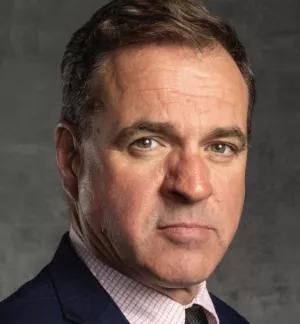Few figures provoke as much passionate disagreement as Henry Kissinger. Equally revered and reviled, his work as an academic, national security adviser, diplomat, and strategic thinker indelibly shaped America’s role in the 20th century. Kissinger’s counsel knew few boundaries: His advice was sought by every president from Kennedy to Obama. Yet the man and his ideas remain the object of profound misunderstanding.
Drawing on 50 archives around the world, including Kissinger’s private papers, this book by Niall Ferguson, Kissinger: Volume 1: The Idealist, 1923-1968, argues that America’s most controversial statesman, and the cold war history he witnessed and shaped, must be seen in a new light. In this first of a two-volume history, Ferguson makes the following points:
- Kissinger was far from a Machiavellian realist. At least in the first half of his career, he was an idealist, opposed to philosophies that see human actions and events as determined by factors beyond our control, such as laws of history or economic development. Kissinger rejected the idea that such “necessity” was the crucial element in human affairs. He exalted the role of human freedom, choice, and agency in shaping the world.
- Kissinger worried that the United States was forfeiting its moral leverage by accepting a Soviet-framed contest over economic productivity. In a remarkable interview with ABC’s Mike Wallace in July 1958, he made the startling argument that the U.S. was being insufficiently idealistic in its Cold War strategy. “I think we should go on the spiritual offensive in the world,” he said. “We should identify ourselves with the revolution.” The aim was not to win a contest between rival models of economic development but above all to “fill…a spiritual void,” for “even Communism has made many more converts through the theological quality of Marxism than through the materialistic aspect on which it prides itself.”
- Kissinger believed deeply in the importance of applied history to good statecraft: “When I entered office, I brought with me a philosophy formed by two decades of the study of history,” he wrote in White House Years. Kissinger went on to say: “History is not, of course, a cookbook offering pretested recipes. It teaches by analogy, not by maxims. It can illuminate the consequences of actions in comparable situations, yet each generation much discover for itself what situations are in fact comparable.”
Ferguson notes: “In researching the life and times of Henry Kissinger, I have come to realize that … I had missed the crucial importance in American foreign policy of the history deficit: the fact that key decision-makers know almost nothing not just of other countries’ pasts, but also of their own. Worse, they often do not see what is wrong with their ignorance…. What is most needed, for students of economics and international relations alike, is a stiff dose of applied history.”
Reviews
George P. Schultz, 60th U.S. Secretary of State:
Combine careful and extensive scholarship, clear writing, and a magnificent subject and you get Niall Ferguson on Kissinger, a genuinely educational read.”
James A. Baker, III, 61st U.S. Secretary of State:
“When an accomplished historian writes about one of the world’s great diplomats, the results are sure to be a masterpiece -- and that is exactly how to describe Niall Ferguson’s epic on Henry Kissinger.”
Condoleezza Rice, Former Secretary of State and Denning Professor in Global Business and the Economy at the Stanford Graduate School of Business:
“This is a terrific biography, and a must read for understanding the evolution of one of the most important and compelling architects of American foreign policy of our age.”
John Lewis Gaddis, Yale University:
“With all that’s been written about Kissinger over so many years, you might think that there’d be little new to say. Think again. Niall Ferguson's Kissinger: The Idealist shifts the trajectory of Kissinger studies fundamentally. Always thorough, often surprising, at times deeply moving, this is an extraordinary biography of the most significant scholar-statesman-strategist of our time, by one of our most accomplished historians. Not to be missed.”
Robert B. Zoellick, U.S. Deputy Secretary of State, Former President of the World Bank, and U.S. Trade Representative:
“Ferguson’s biography will be a classic. This is a story of an influential, complex, and shrewd historical figure set in the context of the drama of America and the world in the mid-20th Century. Ferguson’s research is fresh and revealing, his writing is a pleasure to read, and his insights are sharp and thought-provoking.”
Joseph S. Nye, Jr., Harvard University Distinguished Service Professor and author of Is the American Century Over?:
"Fresh and imaginative, this carefully researched biography reads like a novel. Under Niall Ferguson’s skilled pen, Kissinger the public colossus becomes Henry the boy and man. A wonderful read!”
Ferguson, Niall. “Kissinger: Volume 1: The Idealist, 1923-1968.” Penguin Press, September 29, 2015
The full text of this publication is available via Penguin Press.




